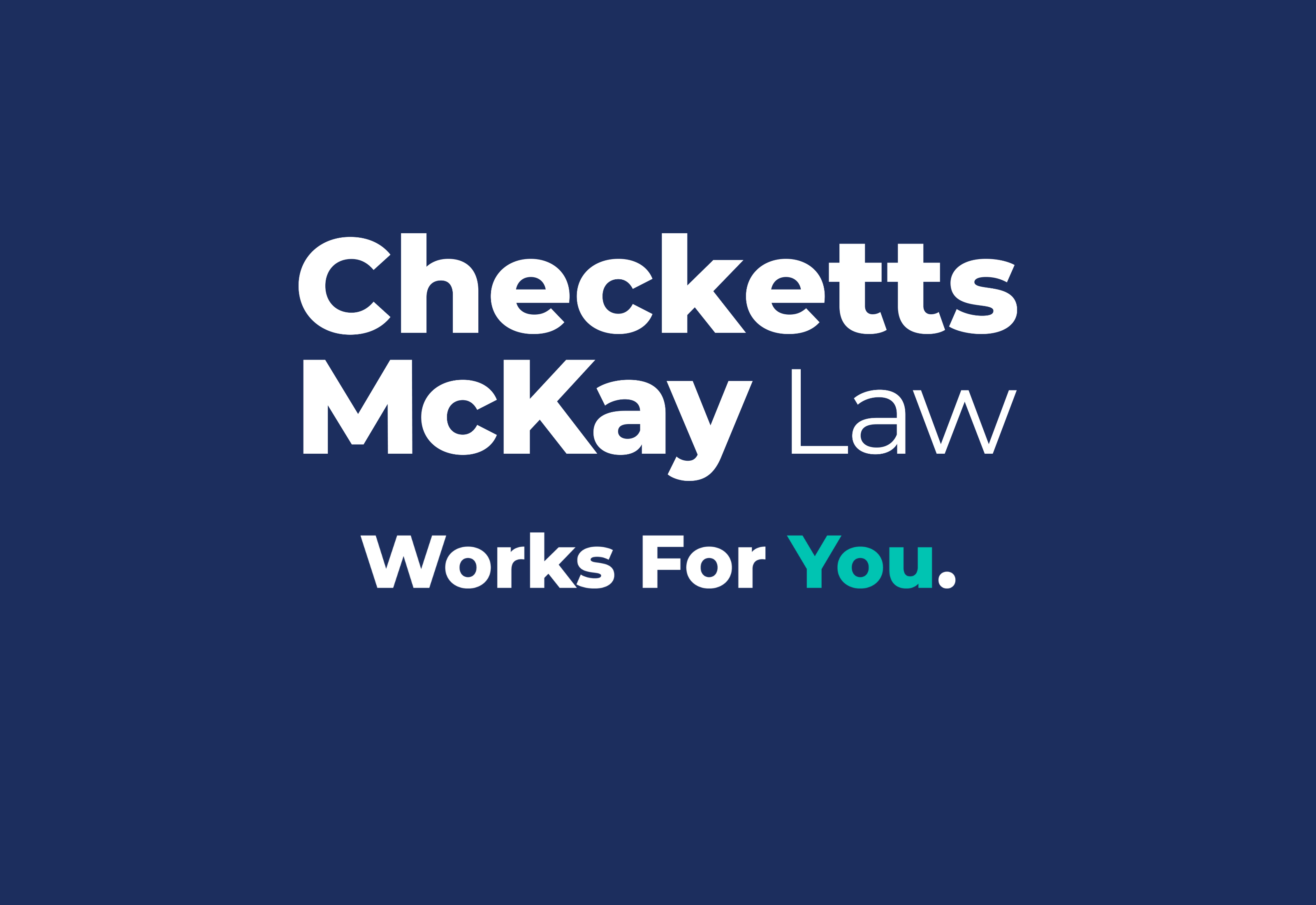Navigating Dismissals Under New Zealand’s 90-Day Trial Period (Law blog)
Checketts McKay Law
11 August 2025, 10:32 PM

Dismissals are never easy—for either party. But under New Zealand law, there’s one scenario where employers can lawfully end a new employment relationship without the risk of a personal grievance for unjustified dismissal: the 90-day trial period.
As of 23 December 2023, any New Zealand employer—regardless of size—can include a 90-day trial clause in their employment agreements. If this clause is valid and correctly applied, employers may dismiss an employee within the first 90 calendar days without having to justify the decision or worry about a personal grievance for unjustified dismissal.
But there’s a catch: one legal misstep and the protection disappears.
What Is the 90-Day Trial Period?
The 90-day trial period is designed to give employers a chance to assess a new hire’s fit without full commitment. It’s particularly helpful where interviews alone don’t paint the full picture—especially in industries or regions where every hire carries financial or operational weight.
Employers can dismiss during the trial period without giving reasons, but the clause must comply with very specific legal conditions. It's not a "free pass"—it's a tool with limits.
When Is a Trial Period Clause Legally Valid?
To rely on a trial clause, employers must get the process right from the beginning. The key legal requirements are:
- The clause must be in writing, in the employment agreement.
- The agreement must be signed by the employee before any work begins. Even a few minutes of unpaid work before signing will invalidate the clause.
- The employee must be genuinely new to the business. Prior casual work or previous employment with the same employer disqualifies them.
- The clause must state that the trial period is for up to 90 days, and clearly explain that dismissal during that period may occur without the ability to bring a personal grievance for unjustified dismissal.
- The employee must be given a reasonable opportunity to review the agreement and encouraged to seek independent advice.
Failure to meet any of these conditions means the clause cannot be relied upon, and a dismissed employee may lodge a grievance for unjustified dismissal.
Why Is This Clause Allowed? What’s the Purpose?
The trial period is intended to reduce the risk of hiring mistakes, especially for small or regional businesses where a poor hire could have outsized consequences.
For example, a local business in Cromwell might need to hire quickly, but won’t know until the employee starts whether they’re a good fit. The trial period offers flexibility and encourages more open hiring, even of those without conventional experience or credentials.
However, trial periods aren’t without criticism. Some worry they can be used to exploit workers or sidestep fair process. That’s why the law imposes strict rules and insists that employers still act in good faith—even if they don’t have to justify a dismissal.
How Does Dismissal Work During a Trial Period?
While no justification is required, employers must still give notice of dismissal, and that notice must be:
- Given within the 90-day period (not on day 91 or later); and
- In line with the employment agreement, or, if unspecified, “reasonable” (usually one to two weeks).
Even though there’s no legal obligation to explain why the employee is being dismissed, employers must still act respectfully and fairly, consistent with their duty of good faith.
Are Dismissals Under the Trial Period Legally Binding?
Yes—provided the clause is valid and the dismissal process meets legal standards. When the requirements are met, the dismissal cannot be challenged as unjustified.
But any slip-up—like failing to provide proper notice or signing the agreement after work begins—invalidates the clause. In that case, the employee gains full protection and can bring a personal grievance.
What Rights Do Employees Still Have?
The 90-day trial period only blocks grievances for unjustified dismissal. Employees still retain the right to bring personal grievances on other grounds, including:
- Discrimination (e.g. race, gender, disability, pregnancy)
- Sexual or racial harassment
- Unjustified disadvantage (e.g. bullying or systemic mistreatment)
- Union-related retaliation or pressure
- Breach of contract, such as failure to give proper notice or access to a support person during meetings
Two notable cases demonstrate this:
- In McClelland v Schindler Lifts NZ, an employee with a hand tremor was dismissed during the trial period. The court ruled the dismissal discriminatory, and therefore unlawful.
- In Farrelly v Advance Office Products, a worker dismissed due to a stutter was similarly found to have been treated unlawfully.
In both cases, the trial clause did not shield the employer from liability.
What Happens If the Trial Clause Is Invalid?
If a trial clause is found to be invalid, any dismissal under it is treated like a regular termination. The employee may then bring a personal grievance for unjustified dismissal.
- Common reasons a clause might fail include:
- The agreement was signed after work began.
- The trial period was not clearly stated or explained.
- The employee had previously worked for the employer.
- Proper notice of dismissal was not given.
In these cases, an employee may be entitled to reinstatement or financial compensation.
Final Thoughts: What Employers and Employees Need to Know
The 90-day trial period is a powerful tool when used correctly—but it must be applied with care.
Employers should ensure that their contracts are watertight and their processes meticulous. Good faith remains essential, and one administrative slip can open the door to legal exposure.
Employees, even during a trial period, still have significant rights. If you suspect you’ve been dismissed unfairly or unlawfully, it’s worth seeking legal advice.
At Checketts McKay Law, we regularly help businesses and individuals across Central Otago understand and navigate the 90-day trial period. Whether you're onboarding new staff, reviewing your employment agreements, or facing an unexpected dismissal—we're here to help.
FAQs: 90-Day Trial Period Explained
Can I be dismissed without reason during the trial period?
Yes—but only if the clause is valid and all legal steps have been followed.
Does my employer need to explain the dismissal?
No, but they must give proper notice and act in good faith.
What if I signed the contract after starting work?
The clause is automatically invalid, and you’re protected under normal employment law.
Can I be dismissed for being pregnant or having a disability?
No. That would breach the Human Rights Act, and you may have grounds for a grievance.
Is a trial period suitable for all jobs?
Not necessarily. For high-skill or fixed-term roles, other arrangements may be more appropriate.
Checketts McKay Law – Works for You.
Proudly serving Cromwell, Alexandra, Ranfurly, Wanaka, and beyond. Whether you're drafting an employment agreement or challenging a dismissal, we’re ready to help you unpack the problem and adapt the solution.
Draft by Karleigh Hoera and Emma Tompkins, Checketts McKay Law.
7 Dunmore Street, Wānaka



